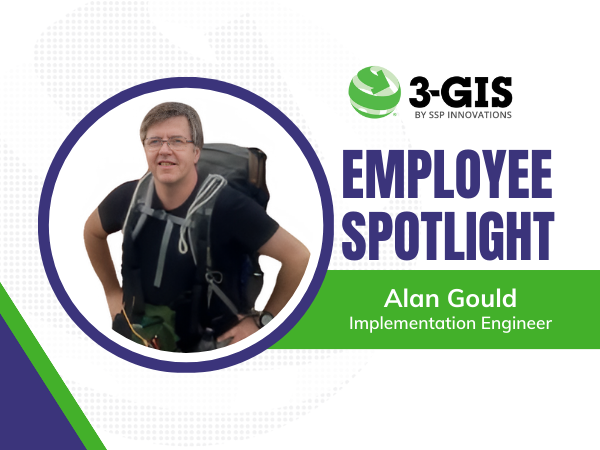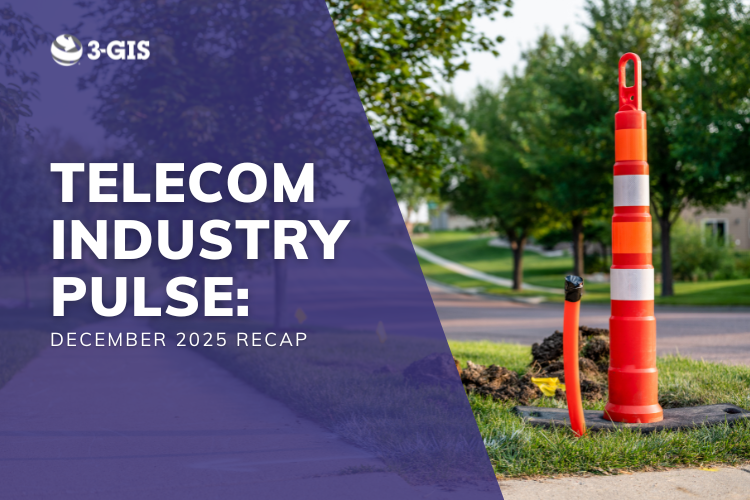We caught up with Alan Gould, Implementation Engineer, to find out more about his long, varied career and his thoughts on the impact of technology in telecom.
1. How did you get started in telecom?
After eight years as an apprentice auto-electrician, I looked for a new career path which led me to joining BT as an OMI (one man installer). This entailed providing phone lines to customers and businesses, including fax and telex lines (who remembers those machines?). A variety of different roles then followed at BT, including Technical Officer and Wideband Fibre Planner.
When the early electronic recording systems were starting to appear in the mid-90’s, I was made architect of what was called the Wideband Fibre Records Project which was a precursor to us moving over to the next GIS inventory management system. I was also part of the team that was tasked with deciding on which product that would be. We selected Network Engineer, and the following years were spent working heavily with developers on implementation, product design and testing, and rolling out training systems and courses for the product across the company (which was now Openreach). As FTTP was emerging, my final role involved heading up a team that would ultimately deliver a mobile planning and recording tool for the entire Openreach FTTP network in the UK.
2. What brought you to 3-GIS?
I had previously worked with the 3-GIS founders (Tom Counts, Tommy Siniard, and Jerry Golden) when BT implemented Network Engineer via Telcordia Technologies. I also wrote the user guides for the very first 3-GIS product, so I have always been on the outer reaches of the company. I ‘officially’ joined 3-GIS in 2022.
My varied experience has been a great foundation for my role at 3-GIS, as I have worked with numerous technologies, which means I can quickly understand what a customer is trying to achieve and how they want to get there. This really helps on the implementation side of things.
3. What trends do you find most exciting or impactful in telecom today?
One area of which I have always been a supporter is using 3D modelling in network planning and design. Going further, utilising BIM and creating digital twins is an exciting development and creates many opportunities and benefits such as reducing cost, increasing accuracy, and minimising wastage.
As a stakeholder representative for the National Underground Asset Register (NUAR) proof of concept and pilot that ran between 2018 and 2021, I see huge benefits in this initiative and one which I would urge the industry to embrace.
4. What achievements are you particularly proud of in your career?
As BT/Openreach was such a large part of my working life, I am proud of the impact I had and the fact that I worked on, contributed to, developed, configured, and deployed every geospatial asset system used by the company. Similarly, as architect/designer of the Wideband Fibre Records Project, which was meant to be an 18-month stop gap but ended up running for 20 years.
Another high point for me has been working with BT Research and Innovation on projects at the forefront of technology and co-inventing various patents along the way. I have also been honoured to receive two ‘Special Achievement in GIS’ awards from Esri.
5. Telecommunications is known for its rapid changes. How do you stay adaptable in such a dynamic environment?
Keeping abreast of technology is key to this, from industry contacts and research papers to the latest telecom infrastructure advancements. Currently I’m reading up on 6G and how that may influence where companies go in the future, how they build their infrastructure, what additional infrastructure they may need, and so on.
Information is so readily available. You can consume huge amounts from sources such as LinkedIn, industry websites, and customer channels which regularly share news and product developments.
6. What advice would you give to someone starting their career in the telecommunications industry?
Firstly, do not be afraid to ask questions. There are no stupid questions – you don’t know what you don’t know!
Passion. If you have a passion for what you do this makes a huge difference to your approach to work.
Never stop learning. As soon as you think you know everything you will be out of date and fall by the wayside.
Treat people how you would expect to be treated – show respect, compassion, understanding and leadership.
If you can work in all areas of telecoms, you will have the best grounding and foundations for your career. In Openreach I started climbing poles and ending up implementing GIS asset management systems and working on future technologies. I feel extremely fortunate for the roles I have worked in.



